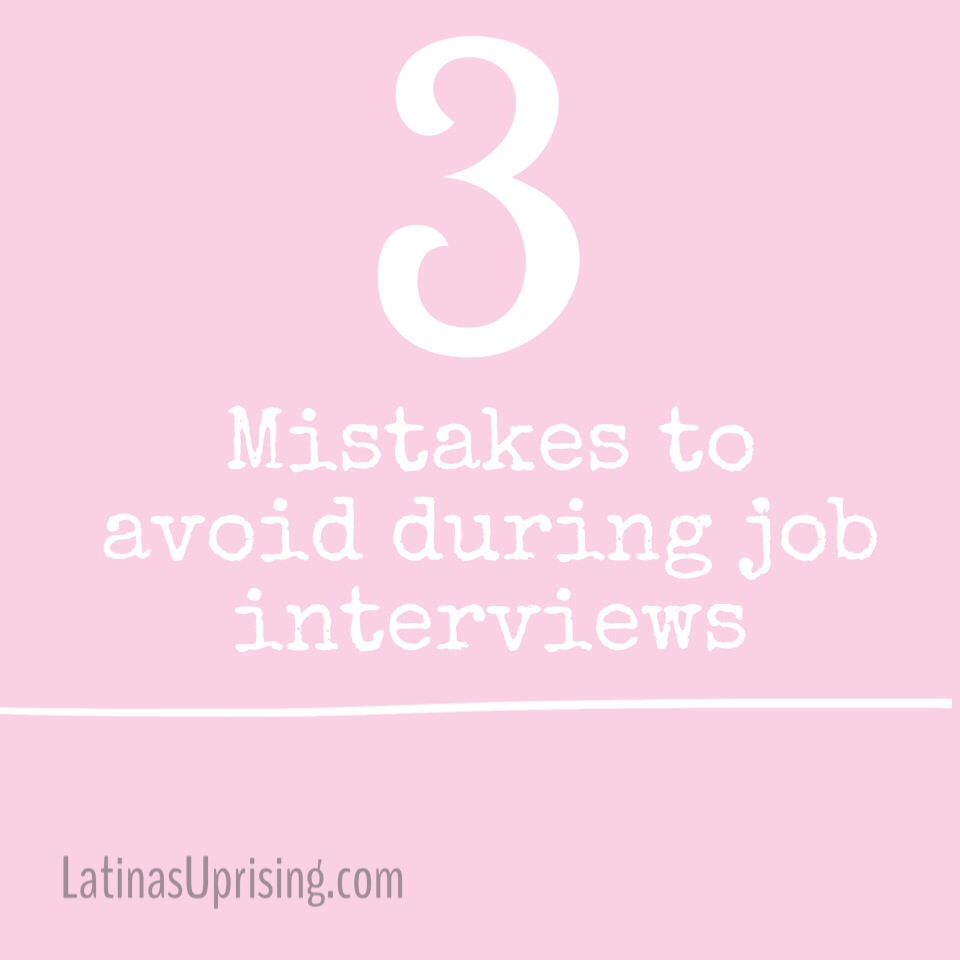What Not to do at a Job Interview
Lately I’ve been doing a lot of networking and interviewing with students. I really enjoy this interaction and am super impressed with most students. Acing interviews really requires a lot of preparation, both in knowing the company, the job description, and your own strengths. Of course there are people who stumble. Often the stumbles occur because of self-doubt or (even worse) being ill-prepared. It’s really awkward to see a good candidate miss the mark because they did something that was very avoidable. I mean, it’s awkward for me, but it’s bad for the candidate because a big stumble may result in not getting an offer. Let’s avoid that!
One. Listen only to respond, rather than to understand. Actively listening is really vital because often the information the interviewer is giving isn’t just stuff you need to know to give a good answer, but it’s also info you need to know to determine whether you even want to work at this place. Go into interviews understanding that it’s a two-way street and that part of the goal is to determine if the work you would be doing is something you actually want to do. For example, at my place, we had a huge restructure a few years ago and a very new restructure in my immediate group. This requires that I give a long introduction about the agency and what it means to our day-to-day responsibilities. I give this info not as a trick to see if the student will be able to relate their experience to our new mission, but rather so that they understand what it will entail to work with us. You may think you’re interviewing with me to do only one type of law, but if you listen you’ll find out that we are incorporating new areas of law that you may or may not be interested in doing. So, take a deep breath and listen to the interviewer.
Two. Forget the rules of professional etiquette. Meaning, there are some must-follow rules when it comes to professional interactions. The first is to have a real flipping handshake. This is so silly I know, but nothing puts me off more than a person who has a weak ass handshake. Unless you have wrist injury, your handshake should be firm. At a networking event recently, I literally had three people hand me their hands in such a dainty demeanor that I thought they assumed I was going to kiss their genteel hand, rather than shake it. Ugh. Don’t do that. Another rule is sending thank you/follow-up email. I didn’t think they mattered to me, but then I had two interviews back to back where one sent me an email and the other didn’t. I didn’t make my decision based on that, but the candidate that did send the email seemed more certain and involved in the process than the one that didn’t follow-up. So, email a thank you.
Three. Don’t ask any questions. Better yet, when I ask if you have any questions, say “not really,” pause, say “um,” then ask a random question immediately afterwards. You can do better. Always have one or two questions ready. Even if I answer your questions during an interview, if I ask if you have a question say YES and then ask something! Here’s why this is important: 1) by not having any follow-up questions it makes me wonder if you even listened to the information I provided and 2) if you’re going to commit your time to this agency, don’t you want to know as much as you can about it? An interviewer can always expand on various topics because there’s no way they’ve given you the complete run-down on the position.
Some of these are easier than others, but if you work really hard to avoid these stumbles it can make a big difference in your candidacy. Tell us, what are other things you try to avoid when interviewing?
